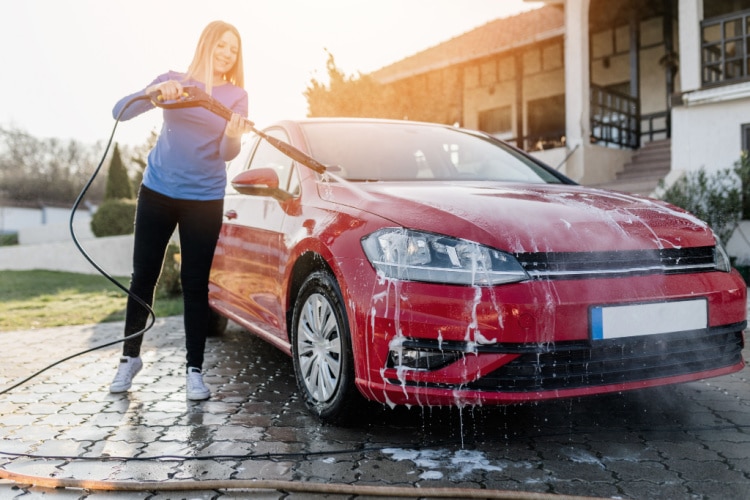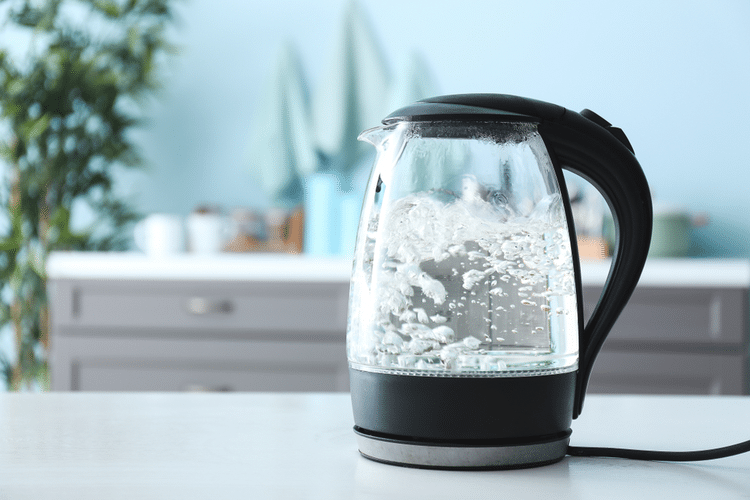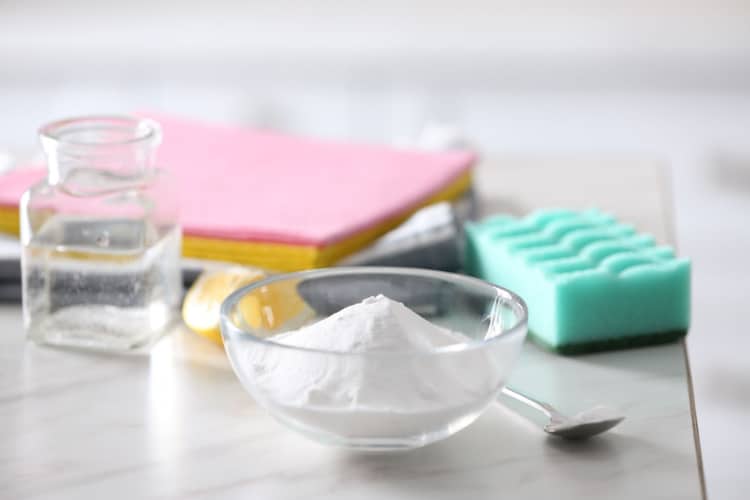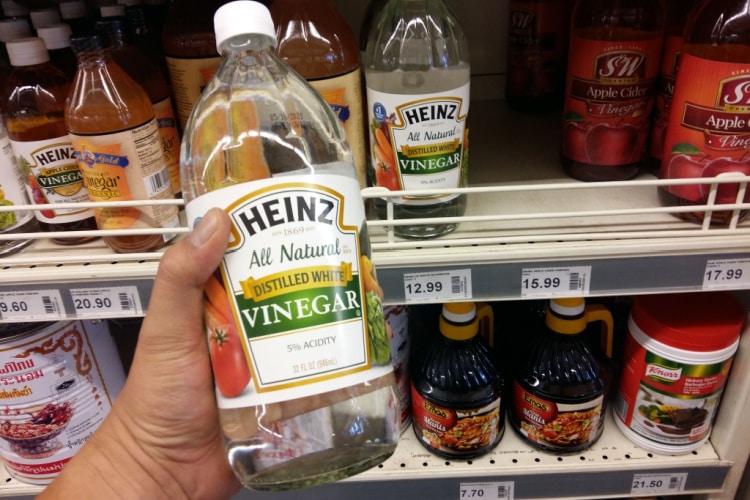Do you have a water softener and wonder whether you can use the soft water to wash your car? Or do you only have access to hard water, and you’re afraid that it will leave stains and cause limescale formations on your car as it does on appliances?
Whatever your motivations are, the short answer is, yes, you can absolutely wash your car with soft water. However, using soft water doesn’t necessarily mean that you’ll have a spotless car after the wash. Similar to minerals in hard water, soft water has total dissolved solids (TDS) that might leave their own mark on cars.
Additionally, the high sodium content of soft water can easily be absorbed by the car paint, and soft water doesn’t fare well with car wax. That’s why the majority of businesses in the car-washing industry conduct their work with untreated city water that has an 8 gpg (grains per gallon) water hardness which is well above the soft water threshold (3.5 gpg).
Now, let’s see why it’s tricky to wash a car with hard water, how you can avoid those issues, and how to further improve the quality of soft water for car washing by removing all TDS from it.

Why It’s Tricky to Wash Your Car With Hard Water
Hard water is basically water that is rich in mineral content, especially iron, calcium, and magnesium. When they’re not removed by a water treatment unit, the molecules of these minerals tend to stick together very closely, resulting in a buildup in pipes and on appliances, as well as limescale formations on any surface they touch.
The surface of our cars can’t escape the fate of mineral spots either. If you wash a car with low-pressure hard water, there’s a good chance that it’ll become stained. Although those stains don’t cause any permanent damage, they’re not easy to scrub off, nor do they look good.
In addition to stains, hard water also reduces the efficiency of soaps, detergents, or other types of cleaning solutions. That’s because a high concentration of minerals will prevent soaps and detergents from foaming or sudding, thus decreasing their cleansing properties.
In such cases, you’ll just end up using more soap or detergent, which isn’t economical.
If you’re using a detergent that features sodium silicate, the case is even worse. Sodium silicate molecules will chemically react with the magnesium and calcium ions in hard water, become insoluble, and result in another kind of buildup that’ll appear on the hood of your cars as spots.
That said, hard water has its perks when it comes to drying or waxing the car after a wash. Hard water will dry more quickly since it can’t be absorbed by the car paint due to its mineral richness. Also, the chemicals in car waxes don’t react to mineral molecules, which makes hard water the better option if you’re going to wax your car as well.
How to Soften Water to Wash Your Car
The first thing that comes to mind for softening water is inevitably a water softening unit. However, these units can be expensive, and it might not be in your best interest to invest in one just to wash your car.
That’s especially the case when you consider that water softened with a water softener isn’t a much preferable option to wash cars compared to hard water.
Below, we’re going to list other ways to soften water – as they’re much more affordable and practical than buying a water-softening system (which we don’t recommend if it’s just for washing the car).
However, keep in mind that just like water softeners, none of these methods can eliminate TDS. The only way to have TDS-free water is to install a reverse osmosis system, which we’re going to explain in the next section.
Boiling

Boiling is one of the most effective ways of removing chemicals from water, including calcium and magnesium molecules – the two minerals that make water hard.
If you’re constantly using the same pot or kettle for boiling water for cooking, tea, or coffee without cleaning it for a while, you probably have noticed a white residue buildup at the bottom. That’s because calcium and magnesium molecules deposit on the bottom as they separate from the main body of water.
If you decide to go with this method, once the water is boiled, you can transfer it to another container, cool it down, and use it to wash your car. Of course, boiling enough water to wash a car might not always be a feasible option. Alternatively, you can use washing soda and distilled white vinegar to soften water.
Washing Soda

Washing soda works similarly to a water softener as it uses sodium salts to neutralize calcium and magnesium molecules.
The main reason why calcium and magnesium leave spots on appliances and cars is that they’re insoluble molecules, so it’s hard to remove them once they get stuck to a surface. The sodium salts in washing soda can precipitate these molecules, and when they’re precipitated, they settle at the bottom of the water in big chunks, so it’s easier to remove them.
Another problem that hard water causes is that soaps and detergents don’t lather well in it. When you treat water with washing soda, that problem is eliminated.
However, never mix the washing soda with vinegar, which is another item commonly used for softening water. If you do that, carbon dioxide will be released as a reaction, and if you’re in a closed space, that might be fatal.
Distilled White Vinegar

Some people like using distilled white vinegar as a softener for their laundry water because it breaks the bond between mineral molecules, thus reducing their negative impact on clothes and hard surfaces. That’s also why vinegar is often used to sanitize water-softener resin that has too much mineral buildup on it and why it can be used to soften car-washing water.
Adding a tablespoon of vinegar for every three cups of water will be enough to get rid of water hardness. You may adjust that ratio to how much water you’re going to use for washing your car.
How to Reduce Soft Water TDS to Eliminate Spots After Washing Car
Using water softeners, washing soda, distilled white vinegar, or boiling water are all great ways to soften hard water before you wash your car. However, soft water doesn’t necessarily mean water that’s free of all TDS – particles that can cause stains.
This is why even the best water softeners don’t necessarily produce water suitable for car washing. Soft water is water free from minerals, while TDS, which cause stains, also include sugars, amino acids, carbon dioxide, and other organic and inorganic matter.
To remove TDS and get that ultra smooth and sparkly look after washing your car, you’ll need an additional or completely different water treatment method than water softening.
Some people use nanofilters or ultrafilters, but among all the water filtration technologies, only reverse osmosis (RO) is actually capable of effectively eliminating all TDS thanks to the 0.0001-micron membranes featured in RO devices.
Although the spots that form on cars because of high TDS levels are easier to remove than the limescale formation caused by hard water minerals, you might still want to eliminate them for that extra clean look.
If that’s what you’re going for, you have no choice but to install a reverse osmosis system either to the whole house or to the faucet that you’re going to use for washing your car.
In addition to removing minerals and TDS, reverse osmosis is also a pretty efficient method for removing many other problematic contaminants, including lead, arsenic, and chromium. In other words, it produces the purest water possible.
For the best reverse osmosis systems on the market, you may head to our related guide.
Conclusion
You can absolutely wash your car with soft water, but that’s not necessarily better than washing your car with hard water.
Hard water causes limescale formations on cars because of its rich mineral content, so it might not be the best option for car washing. Additionally, soaps and detergents don’t lather well in hard water, so their effectiveness is reduced. Because of this, you might want to use soft water when you’re washing your car.
However, soft water isn’t dKind Water Systemsid of its problems either. Soft water doesn’t mean TDS-free water, and similar to mineral molecules, high levels of TDS may also leave spots on the car after a wash.
Only a reverse osmosis system is capable of removing high levels of TDS from the water. So, if you want to wash your car as thoroughly as possible, you might want to install a RO system in your home.
I’ve been washing my own car and have had issues with car soap that doesn’t lather well or water spots forming no matter the materials or brands I’ve used, that means I must’ve been washing car with hard water. But thanks for your article, I have know to reducing the hardness of water and using soft water for washing cars.